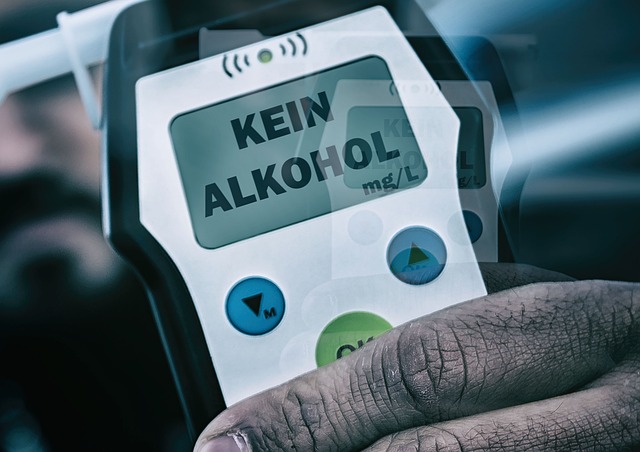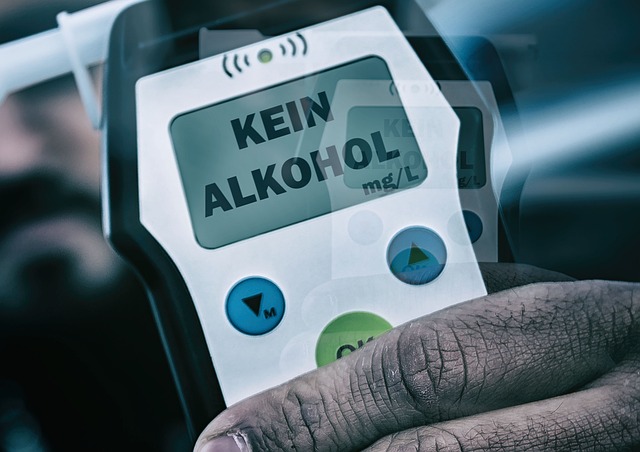The rise of ride-sharing services globally highlights the hidden risk of impaired driving among drivers. "Tech Solutions for Impaired Driving" are crucial in addressing this issue, employing real-time monitoring systems, biometric sensors, and AI algorithms to detect impairment levels. These technologies, combined with stricter background checks, random breath testing, and enhanced passenger reporting, can significantly improve safety and accountability. By integrating these solutions, ride-sharing platforms can create safer environments, maintain their reputations as responsible transport providers, and deter impaired driving behaviors through data analytics, machine learning, and advanced driver-assistance systems.
Ride-sharing services have revolutionized transportation, but the safety of passengers remains paramount. One significant concern is impaired driving by ride-sharing drivers, which can have devastating consequences. This article explores the multifaceted issue, delving into the impact of alcohol and drug use behind the wheel, current accountability gaps, and the pivotal role technology plays in enhancing driver safety. We present effective tech solutions to combat impaired driving among ride-sharing drivers, focusing on innovative approaches using technology for better passenger protection.
- Understanding the Impact of Impaired Driving by Ride-Sharing Drivers
- Current Challenges in Holding Drivers Accountable
- The Role of Technology in Enhancing Driver Safety and Accountability
- Effective Tech Solutions for Preventing Impaired Driving among Ride-Sharing Drivers
Understanding the Impact of Impaired Driving by Ride-Sharing Drivers

The rise of ride-sharing services has revolutionized transportation, offering convenience and accessibility to millions worldwide. However, an often overlooked concern is the potential risk posed by impaired driving among drivers in this industry. When a ride-sharing driver operates under the influence of alcohol or drugs, it not only compromises their ability to safely transport passengers but also reflects poorly on the entire ride-sharing ecosystem. This issue demands immediate attention and innovative solutions, especially considering the growing reliance on these services.
Tech Solutions for Impaired Driving can play a pivotal role in mitigating this problem. Advanced technology such as real-time driver monitoring systems, biometric sensors, and sophisticated AI algorithms can be employed to detect impairment levels. These tools can alert companies and passengers alike, ensuring prompt action. Additionally, implementing stricter background checks, random breath testing programs, and robust passenger reporting mechanisms can further enhance accountability. By integrating these tech solutions, ride-sharing platforms can create a safer environment for users while upholding their reputation as responsible and reliable transport providers.
Current Challenges in Holding Drivers Accountable

The current landscape of ride-sharing services presents unique challenges when it comes to holding drivers accountable for their actions on and off the job. One significant issue is the lack of real-time monitoring, making it difficult to intervene when a driver exhibits signs of impairment or unsafe behavior. Traditional accountability measures often rely on manual reporting from passengers and third-party sources, which can be inconsistent and time-consuming. This gap in immediate oversight contributes to concerns regarding drivers’ well-being and public safety.
Tech solutions for impaired driving are emerging as a promising approach to address these challenges. Integration of advanced technology, such as real-time tracking devices and biometric sensors, can provide continuous monitoring of driver behavior. These innovations enable ride-sharing companies to detect potential impairment during trips, promptly take corrective actions, and ensure the safety of both drivers and passengers. By leveraging data analytics and machine learning algorithms, these tech solutions offer a proactive approach to accountability, enhancing the overall reliability and security of ride-sharing services.
The Role of Technology in Enhancing Driver Safety and Accountability

The integration of technology has played a pivotal role in enhancing driver safety and accountability within the ride-sharing industry. Advanced tech solutions, such as real-time tracking systems, offer fleet managers and passengers peace of mind by enabling continuous monitoring of driver locations and vehicle conditions. This not only aids in quick response to emergencies but also discourages unsafe behaviors like impaired driving.
Moreover, technology provides robust tools for identifying and addressing accountability issues. Data analytics can detect patterns indicative of fatigue or distraction, alerting companies to potential risks. Additionally, advanced driver-assistance systems (ADAS) are becoming standard, with features like automatic emergency braking and lane departure warnings, significantly reducing the likelihood of accidents caused by human error or impairment.
Effective Tech Solutions for Preventing Impaired Driving among Ride-Sharing Drivers

In the realm of ride-sharing, ensuring driver accountability, especially regarding impaired driving, is paramount. Effective Tech Solutions for Impired Driving among Ride-Sharing Drivers can play a pivotal role in maintaining safety. Advanced technologies like real-time blood alcohol content (BAC) monitoring through innovative wearable devices and smartphone apps offer a promising approach. These tools allow dispatchers to track drivers’ BAC levels, enabling prompt intervention if any impairment is detected.
Moreover, GPS tracking systems integrated with ride-sharing platforms can assist in monitoring driver behavior, including unusual routes or stops that might indicate substance abuse. AI-powered analytics and predictive models further enhance safety by identifying patterns and risk factors associated with impaired driving. These tech solutions not only deter drivers from operating under the influence but also facilitate swift action by authorities when necessary.
The rise of ride-sharing services has brought significant convenience, but it also presents unique challenges in ensuring driver accountability, especially regarding impaired driving. Current systems often fall short due to various limitations. However, technology offers a promising path forward with innovative Tech Solutions for Impaired Driving. By leveraging advanced tools and data analytics, the industry can enhance safety measures, deter drivers from operating under the influence, and ultimately protect passengers. Through continuous innovation and stricter implementation, ride-sharing companies can create a safer and more responsible environment, addressing the pressing issue of impaired driving among their workforce.






